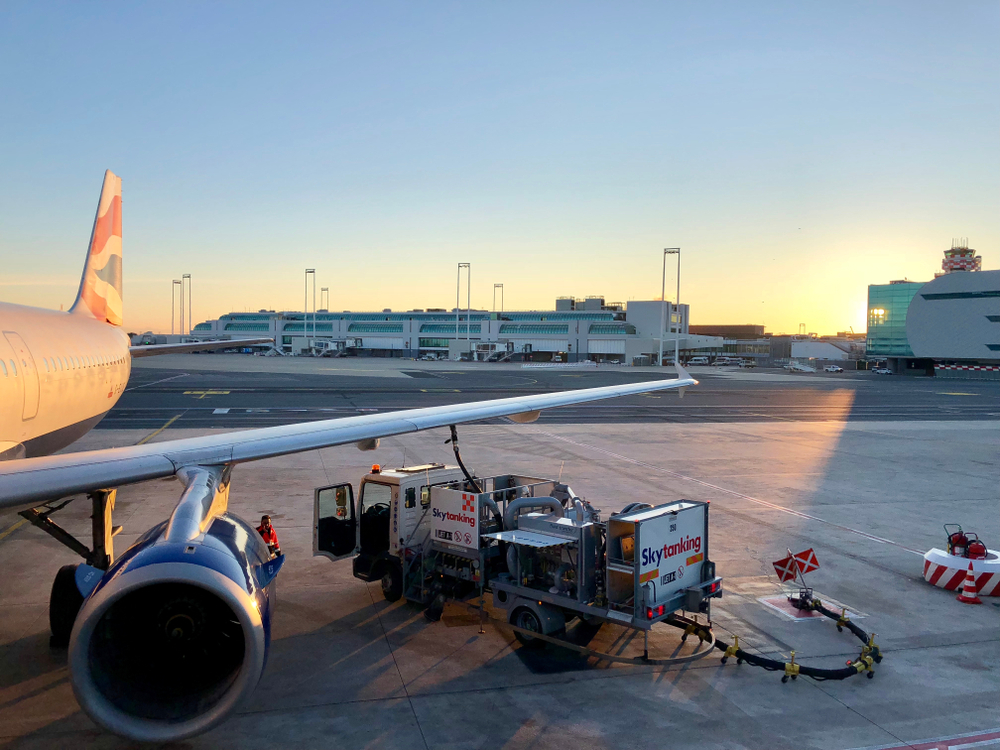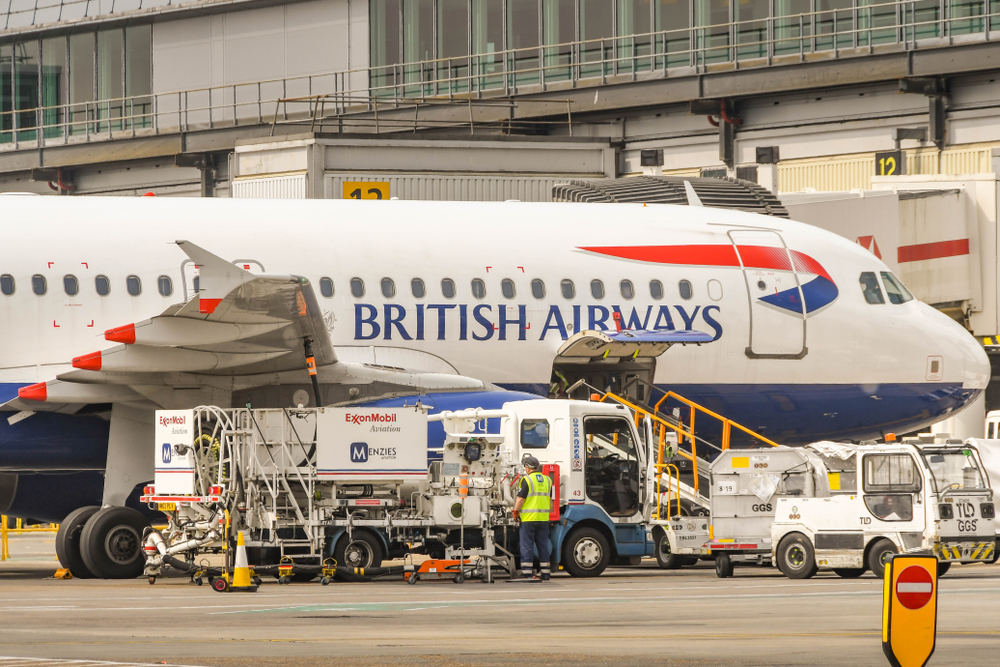The UK government has agreed to invest £53 million ($66 million) into developing the UK’s Sustainable Aviation Fuel (SAF) industry.
The latest injection of cash into the UK’s SAF program will benefit nine projects awarded funding in the latest round of the Department for Transport’s Advanced Fuels Fund.
The Advanced Fuels Fund is worth £135 million ($169 million) in total and is designed to help companies convert waste materials and by-products (such as household waste like cooking oil and industrial gases) into fuels.
The project’s overall aim for SAF specifically is to achieve greenhouse gas emissions savings of more than 70% compared to conventional fossil jet fuel, according to the Department for Transport.
Projects that will see investment as part of this latest tranche of funding include a plant demonstrating the process of converting sawmill and forestry waste and a commercial plant using power-to-liquid technology to convert CO2 and green hydrogen into aviation fuel. It is reported that both projects could create a combined total of over 70,000 tons of SAF a year.
Elsewhere, Project Speedbird (a joint partnership between Nova Pangaea Technologies (NPT), Lanza Jet, and British Airways) has also secured new funding totaling £9 million from the government fund.
The project is expected to produce SAF at full capacity by 2028, supporting progress towards the UK’s SAF mandate, which will require at least 10% of jet fuel used by airlines to be made from sustainable feedstocks by 2030.

Project Speedbird is projected to produce 102 million liters of SAF a year, cutting carbon dioxide emissions on a net lifecycle basis by 230,000 tons yearly. This figure equates to approximately 26,000 BA domestic flights.
As a result of such projects, the UK could potentially develop the capability to produce up to 810,000 tons of SAF. Additionally, projects involved in the program are forecasted to create up to 10,000 green jobs by 2035 and boost the economy by around £1.8 billion ($2.25 billion) per year.
“The investment we’re announcing today demonstrates our confidence in the UK’s SAF industry – creating jobs, encouraging overseas investment, and leveling up communities across the whole country,” said Mark Harper, the UK’s Secretary of State for Transport. “Thanks to this government’s backing, the UK is quickly becoming a SAF superpower, ensuring people can continue to travel how they want, in a way that’s fit for the future.”
“Delivering a UK SAF industry this decade is a must if we are to drive down emissions from aviation, meet our 10% SAF mandate, and reduce costs for consumers,” said Tim Alderslade, Chief Executive of trade body Airlines UK.
“We welcome this latest funding announcement, which will support several innovative projects across all parts of the UK. The pieces of the puzzle are coming together, but more work is needed, in particular, to deliver the initial plants under construction by 2025 while keeping overall transition costs as low as possible for passengers so air travel can continue to be enjoyed by all in the decades to come,” he added.
The announcement has been described as a “milestone marker” ahead of the world’s first transatlantic flight using 100% SAF to be flown by a Virgin Atlantic Boeing 787 Dreamliner on November 28, 2023. The flight, due to operate from London-Heathrow Airport (LHR) to New York JFK Airport (JFK), has been backed in part by up to £1 million ($1.25 million) of UK government funding.


